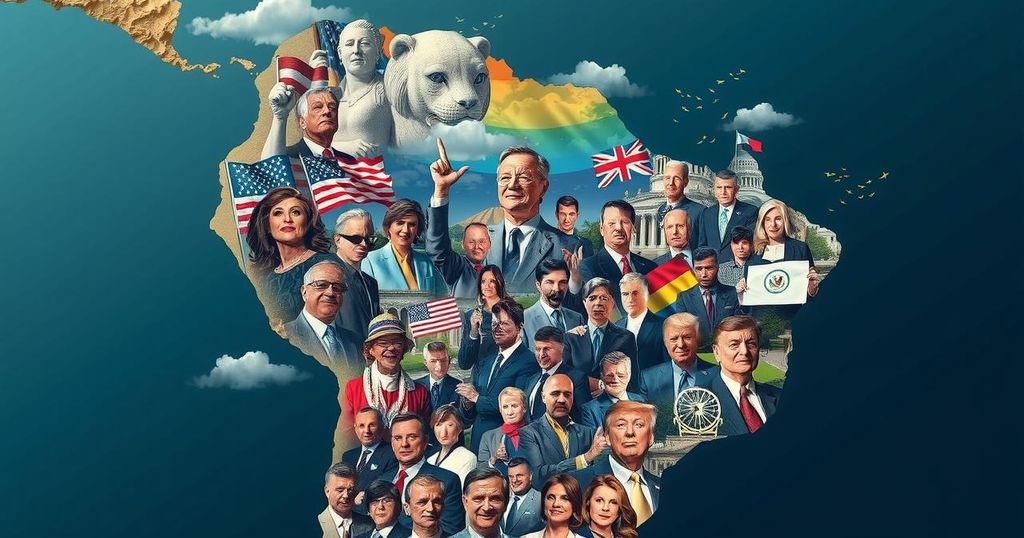The progressive Broad Front reclaimed the Uruguayan presidency with Yamandú Orsi’s victory over Álvaro Delgado in a 52-48 runoff. This win signifies a shift in appealing to rural voters, countering right-wing movements. Concurrently, Chilean President Gabriel Boric faces sexual abuse allegations, complicating the political atmosphere in the region, amidst Brazil’s continued dominance in football.
In recent developments within Latin America, the progressive Broad Front has successfully reclaimed the presidency of Uruguay, with Yamandú Orsi defeating conservative Álvaro Delgado in a closely contested runoff election, registering a margin of 52 to 48 percent. This represents a significant shift from the previous electoral cycle, where the Broad Front struggled to connect with rural voters, losing considerable support in those areas. Even amid a political landscape dominated by right-wing movements, Orsi’s victory demonstrates that a coalition strategy focusing on both rural and urban concerns can yield favorable outcomes, showcasing a path forward for progressive entities in the region.
Simultaneously, Chilean President Gabriel Boric is engulfed in controversy due to allegations of sexual abuse, further complicating the political narrative in South America. President Boric’s administration continues to face scrutiny as these claims emerge, potentially affecting his governance and public perception. Meanwhile, Brazil’s prominence in South American football remains a highlight, signaling a continued cultural influence throughout the continent. The contrasting fortunes of leaders in these nations exemplify the complexities currently shaping Latin America’s political and social landscapes.
The political climate in Latin America is undergoing dramatic changes, with progressive movements experiencing transformative electoral victories amid rising right-wing populism. The Broad Front’s recent election in Uruguay marks the end of a significant drought for leftist parties since their defeat in 2019, reflecting shifting dynamics between urban and rural voters. In addition, the controversies surrounding Chilean President Gabriel Boric indicate growing tensions surrounding issues of governance and public trust. As these electoral strategies and political scandals unfold, they reveal broader trends impacting the trajectory of Latin American politics.
In summary, the recent elections in Uruguay underscore a pivotal moment for progressive politics in the region, highlighting effective strategies to engage with diverse voter bases. The allegations facing Chilean President Boric further illustrate the challenges faced by leaders in volatile political environments. Collectively, these events not only influence the immediate political landscape but also set crucial precedents for future electoral battles across Latin America.
Original Source: brazilian.report






